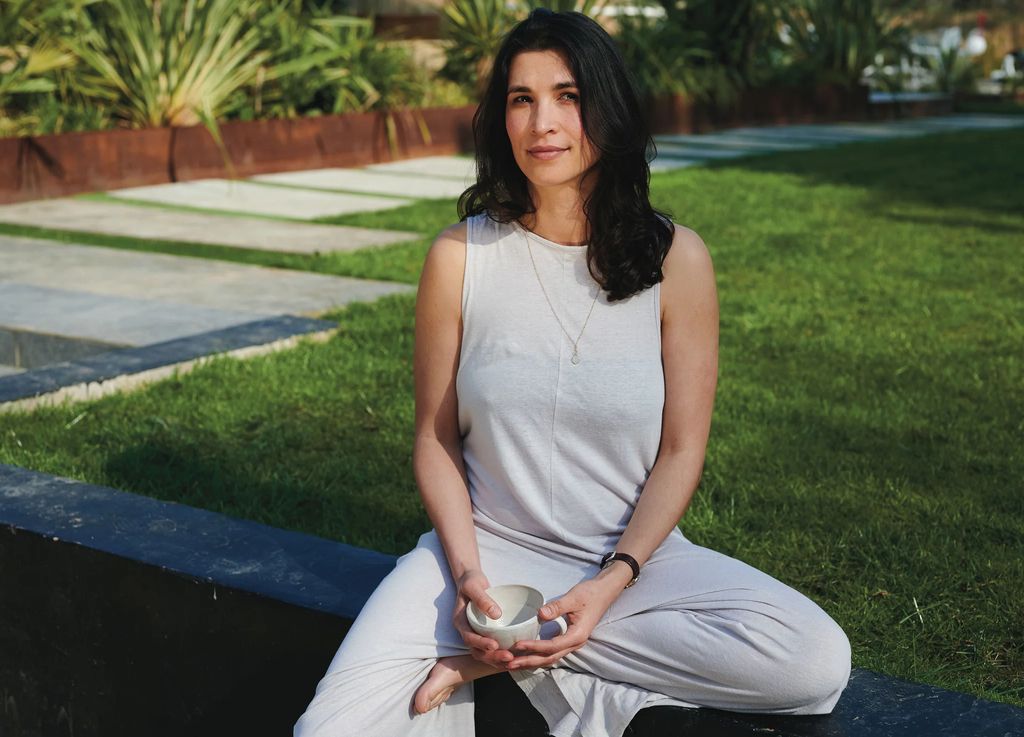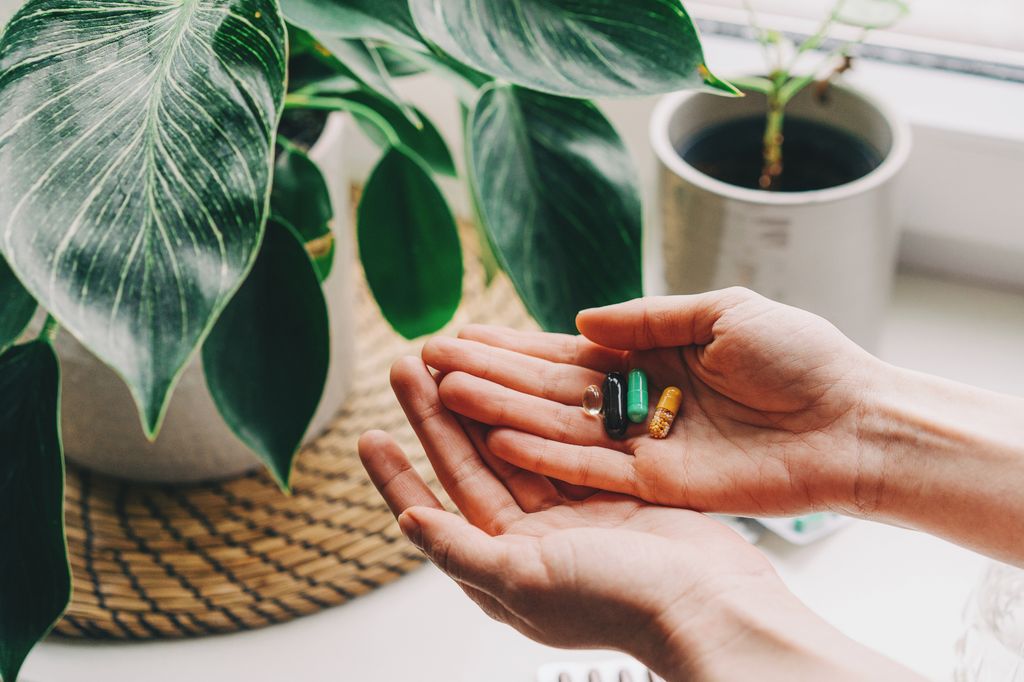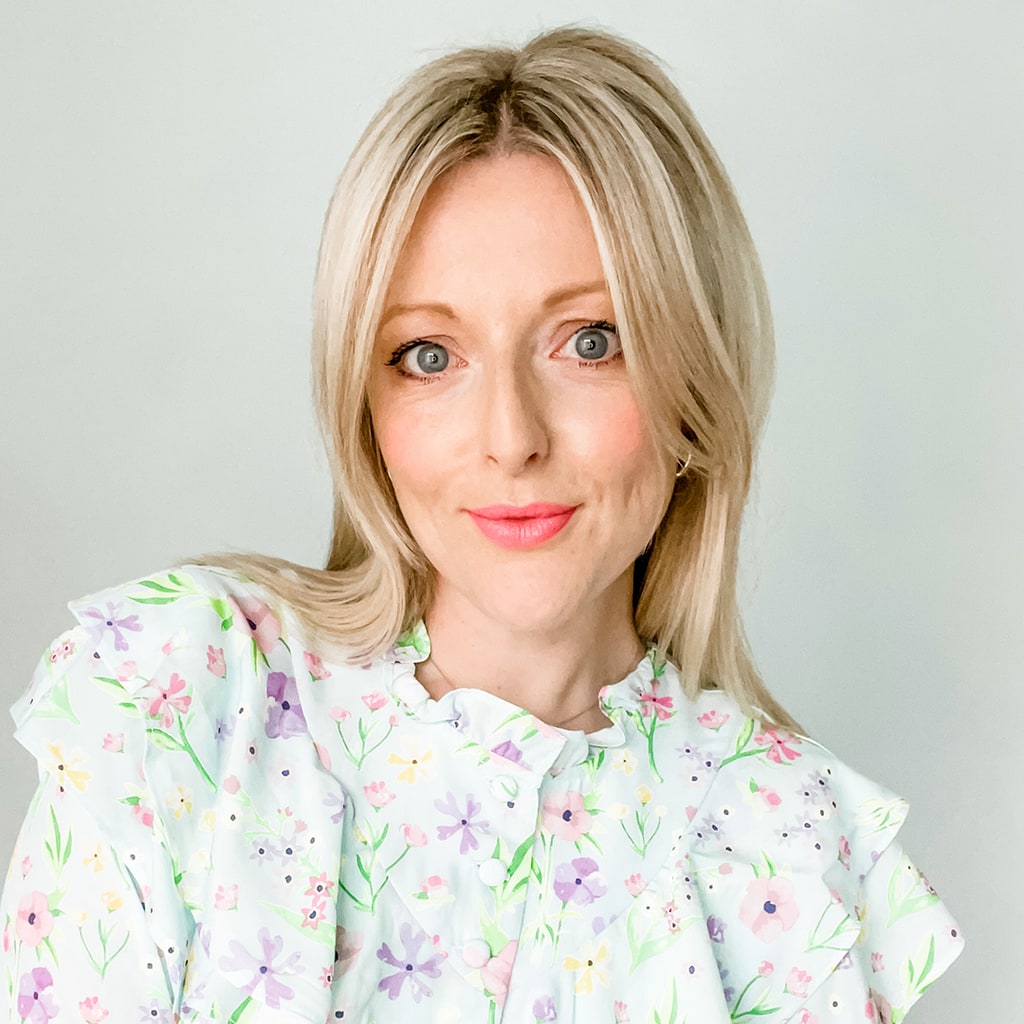Not just the month of Easter, fools and endless showers, April also marks National Stress Awareness Month. But rather than dwell on the symptoms of stress and their negative input, we decided to mine some of the most successful women we know, from nutritionists to neuroscientists, for their advice on de-stressing.
1. Track your stress
Personal trainer Chloe Thomas is one of the most inspirational women in the world of fitness, with endlessly motivational videos readily available on her social media channels, as well as via one-on-one coaching.
Despite the endorphins that are undoubtedly running around her body, Chloe still finds herself stressed, but has a clever way to monitor her stress levels.
"My Oura Ring a game is changer for managing my stress levels," she tells HELLO!. "It tracks my HRV (the variation in time between each heartbeat), my resting heart rate, body temperature and sleep, giving me insights into how my body is coping.
"This has been really useful during periods of higher stress in my life to help me make sure I am looking after myself.
"It also highlights sleep quality, which massively impacts stress levels and suggests breathwork or meditation when needed. The Oura Ring app also connects to my Natural Cycles app which is useful to correlate stress with my cycle.
"I like to be aware that if stress is high or I've slept badly sleep and my cycle is calling for more sleep (eg. during the luteal phase), my ring tells me, and I can make time to look after myself."
2. A stress toolkit
Nutritionist Jo Woodhurst says that to manage stress, it's "essential to cultivate a personal toolkit which can support you."
She adds: "This toolkit could include, yoga, nature walks, breathwork, exercise, sleep tools and so on.
"A key tool within this kit is nutrition. Properly nourishing both mind and body is essential for keeping up with daily demands and preventing depletion.
"By providing the right nutrients, we equip our body with the building blocks needed to support a resilient and adaptive nervous system.
"But let's be clear, in today's fast-paced world, we often need an extra layer of support on top of our daily diets - and this is where supplements can come in. Some supplements with key minerals such as magnesium have a soothing effect on the nervous system and help to relax tense muscles.
"Vitamin C, on the other hand, is important for our adrenal health. Other supplements provide adaptogenic mushrooms such as Reishi or herbs such as Ashwagandha which help to support the body in dealing with the physical and chemical effects of stress. "
Taking these alongside your other tools in your stress management kit provides a full spectrum approach rather than a quick fix."
3. A calming drink
"'Rested Resilience' by Forage Botanicals is lovely for stress," says nutritionist Hannah Alderson.
"This chai latte blend helps reset your nervous system from the effects of long-term stress. It's spiced with warming cinnamon and nutmeg, and fortified with ashwagandha and oat tops which help soothe an overwhelmed nervous system."
On ashwagandha, Hannah explains: " Ashwagandha is best known for its ability to reduce stress. It's classified as an adaptogen, a collection of plant based substances that help the body cope with stress and maintain a state of balance.
"Adaptogens are thought to interact and reduce the activity of the HPA axis, which is responsible for the body's stress response and they may help regulate the release of stress hormones such as cortisol, potentially reducing the body's physiological response to stress."
Just like Jo, Hannah is quick to note that a supplement alone isn't going to reduce stress.
"Stress is a big word and it's important to remember that no single supplement is going to solve it – your body doesn't work like that. Reducing elevated cortisol is a joint effort of positive action, human connection, joy, nutrition, sleep and movement - and you can have a bonus bit of help from supplements."
4. Strong boundaries
"I massively value my personal time, and I have strong boundaries in place around how much I work," neuroscientist Dr. Tara Swart explains. "I have noticed that my restoration comes from being around people that I love, and my tribe is absolutely what eases stress."
On top of that, Dr. Tara, who works with mushroom team brand Dirtea, adds that nature is the easiest way to soothe stress. "It's not possible to feel stress at the same time as the awe and wonder being outside elicits," she says.
5. Saffron – but with caution
Nutritionist Charlotte Faure-Green explains that a supplement that helps one person unwind might leave another feeling flat or even anxious. "The right supplement depends on your body, not just what is trending," she cautions.
"If you are not already taking an antidepressant, saffron is a great option as a supplement to help with stress.
"At around 30mg daily, it has been shown to support serotonin and dopamine naturally without making you drowsy. I like 'Saffrosun Calm' from The Naked Pharmacy."
















